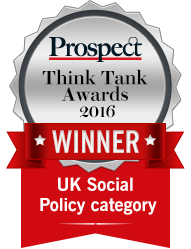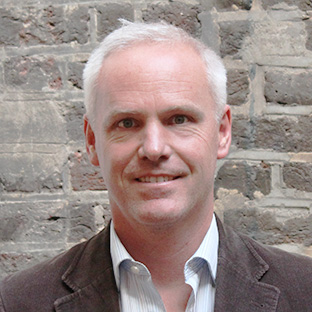It is fair to say that 2016 was a challenging year for democracy and for economists. We can strengthen both by firmly placing economics within the realm of political and philosophical debate, not as the preserve of a remote class of technocrats.
When writing about economics, I like to think there is a John Maynard Keynes quote for every occasion. So here it is:
“If economists could manage to get themselves thought of as humble, competent people on a level with dentists, that would be splendid.”
This time I want to take issue with the great economist and thinker.
Although his call for humility is both welcome, and echoed after the EU referendum by Paul Johnson, Director of the Institute for Fiscal Studies, his comparison with dentists sends us in completely the wrong direction.
Dentistry stands on a body of scientific knowledge which we can rely on as objective and apart from ourselves.
My dentist can predict with a high degree of certainty (I hope) what will happen when she applies various courses of treatment to my teeth.
She does not need to contend with the complex system dynamics of unpredictable tooth behaviour, how my teeth might interact with each other on social media, or whether or not the free movement of teeth has become a politically charged issue.
Most importantly of all, my teeth do not head off to the polls every five years to elect a new dentist.
No, economics is not at all like dentistry.
As I have argued previously in ‘Give me a nine-handed economist, for democracy’s sake’, the nature of the complex social and physical system we refer to as “The Economy” is such that we will always have a richer understanding if we apply a variety of different theoretical models to try to understand it.
In other words, and as the Rethinking Economics student group have been arguing with great effect, we need economics to be an open and pluralist profession where different schools of thought can enter a fruitful dialogue rather than deny each other’s very legitimacy.
Economics is never value-free. It is embedded with ethical assumptions and political choices. Not only do citizens deserve these values and assumptions to be brought out into the open for everyone to see and debate, we will build a stronger a more secure democracy by doing so.
One in which we treat voters more like grown-ups who can take responsibility for the ‘tough choices’ that politicians like to talk about but somehow usually avoid.
When Michael Gove offered his (presumably expert) opinion that this country has had enough of experts, I don’t think he was referring to dentists.
But economists behaving like dentists is more likely part of the cause, not the cure, for our ever increasing scorn for economic and political debate.
We need new approaches and tools for democratic engagement.
Deliberative processes such as the RSA Citizens Economic Council are one, but there are also huge opportunities opening up for digital democratic engagement.
The pioneers of the internet imagined it would enable a new world of open knowledge, global cultural understanding and harmony.
Instead, we have fake news distributed via social media on an industrial scale interacting with creaking electoral systems.
This is not how we will master 21st century global challenges.
Economics is not just for technocrats. After all, the founding father of economics (and RSA Fellow) Adam Smith, was a moral philosopher. Little is known about his skills in dentistry.

The RSA is Prospect's Social Policy Think Tank of the year


Jay Grey
22nd March 2017
We can fortify democracy and economy both by solidly putting financial matters inside the domain of political and philosophical verbal confrontation, not as the safeguard of a remote class of technocrats.
Regards,
Jay
Stephen de Looze
31st January 2017
An interesting take on the role (and relevance) of economists in the context of informing the electorate. I would contend that it has not at all been a challenging year for democracy, quite the contrary. People democratically voted for Brexit and Trump and got just what they voted for. I would agree though that it has been challenging for economists. Gove was right in saying that people have had enough of 'experts'. Experts of all kinds, including economists, have become an industry in themselves driven by the relentless needs of the 24hr news broadcasts and their requirement to put up some hapless individual on our screens to tell us how to live our lives. God protect us from experts (and dentists!).
Derek Bates
18th January 2017
Tony, we've met a few times at the House of Commons and the RSA. Your comment 'we need new approaches and tools for democratic engagement' is very cogent and is a topic I air in 'Agenda for the Future' which I am writing with Vicky Pryce. We are told almost daily that we live in a democracy but the electorate has no ability to influence government policy other than putting a cross on a piece of paper once every five years. It would be good to meet with you over coffee to exchange ideas. Derek Bates [email protected]